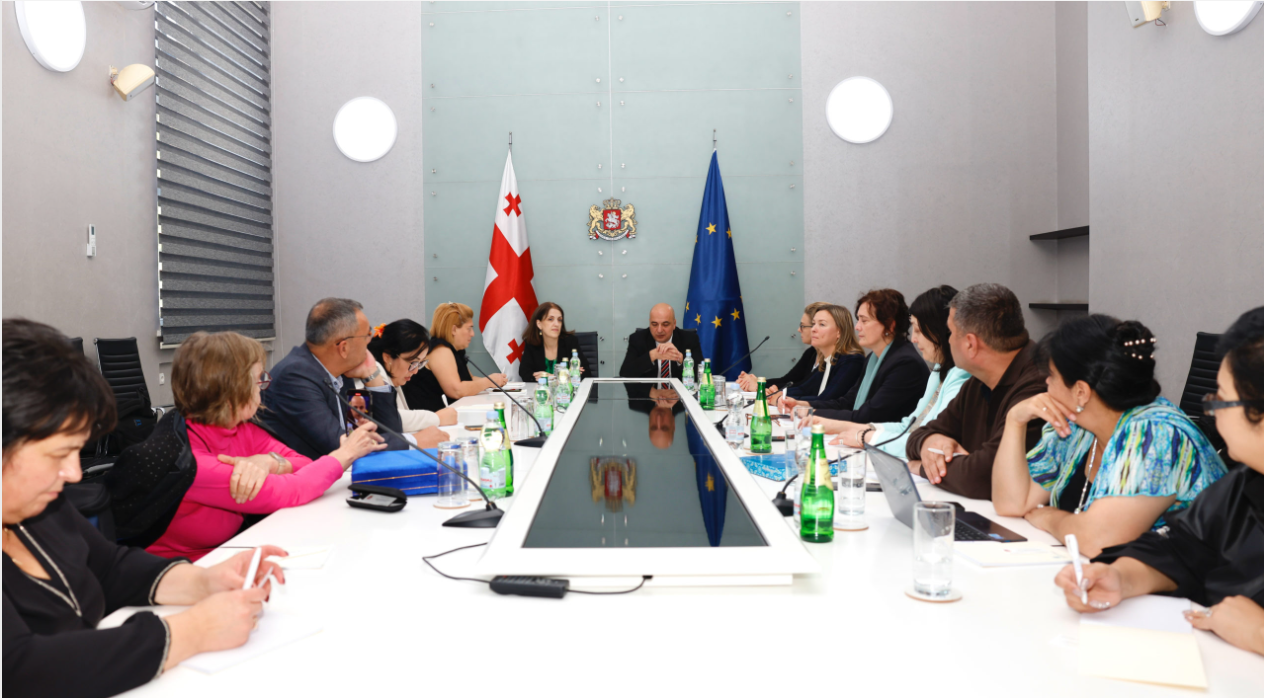
As a part of the KIX EMAP Rapid Customised Country Support (RCCS) in Europe and Central Asia, representatives from the Kyrgyz Republic, Georgia, Moldova, Uzbekistan and Tajikistan met in Tbilisi, Georgia from 24-28 September 2023 to foster a deeper understanding of inclusive education in Georgia. This RCCS program entails analytical work of inclusive education policies and practices within each participating country and comparative analysis across them. This visit is one of two learning visits, in which each delegation, which included two Ministry of Education representatives, had the opportunity to engage directly with successful practices of inclusive education. During the visit, participants engaged in sessions at the Georgian Parliament, the Georgian Ministry of Education and Science and two inclusive education-focused schools.
A significant discussion was held at the Georgian Parliament with Baya Kvitsiani and Giorgi Chakvetadze from the Education and Science Committee. Participants delved into Georgia’s policies supporting inclusivity, with additional insights from the Ministry of Education and Science. The meetings highlighted Georgia’s strides in inclusive education reforms and emphasised collaboration in addressing challenges. The focus was on ensuring quality education for every child, irrespective of their background or capability.
The delegates also met with experts from Tbilisi State University, namely Gagoshidze Tamar and Ekaterine Dgebuadze, to understand teacher training for inclusivity. Moreover, to learn more about the implementation of inclusive pedagogy firsthand the participants visited the Inclusive Education School No. 55 and the Special Education School Nr. 200.
The NGO ‘Child, Family, Society’ hosted this learning visit, emphasising the power of inter-country exchanges in advancing the understanding of inclusive education policies and practices. The NGO ‘Child, Family, Society’ has worked actively in Georgia on the issues of social integration of children and adolescents with disabilities over the last three decades.
Following the productive sessions in Tbilisi, the second study tour took place in Uzbekistan. This second visit continued the collaborative spirit, providing an opportunity for the participating countries to learn more about Uzbekistan’s strides and challenges in inclusive education. In parallel, work continues on the creation of inclusive education databases, national situational analyses and a cross-country comparative analysis.
